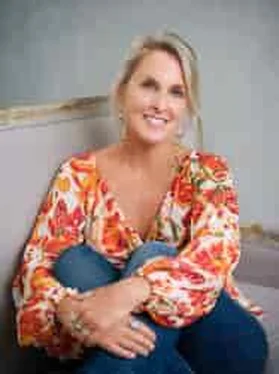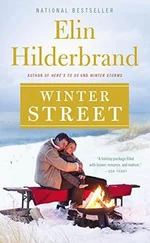They both have to get back to work, so they fly to Washington together first thing Thursday morning. It’s only after they take their seats in first class—the gate agent looked at Ursula and gave them a free upgrade—that Ursula turns to Jake and says, “How was Nantucket?”
“Oh,” he says. “It was fine, I guess. With all that happened, I can barely remember.”
“There was a young woman’s voice on the answering machine,” Ursula says. “Who was that?”
“That?” Jake says. “I’m not sure.” He plucks the in-flight magazine out of the seat pocket in front of him in an attempt to seem unconcerned. “Coop’s sister, maybe? It’s a family cottage.”
“Coop’s sister?” Ursula says. “That’s the bridesmaid you danced with at his wedding, right?”
Jake lowers the magazine in mock frustration. “Honestly, Ursula, I don’t remember.”
“Well, was she there?” Ursula asks. “The sister?”
Jake has spent four weekends with Mallory. He’s lucky, he supposes, that he only now has to lie about it. “No, Ursula, like I told you, it’s a guys’ weekend.” He’d told Mallory before he left that he had given Ursula the number for the cottage in case of emergency. Obviously I never thought she’d use it, he said. I’ve known Ursula since she was thirteen and there has never been an emergency she couldn’t handle by herself.
Ursula nods—but does she look wholly convinced? “Okay,” she says.
When Jake unpacks that evening after work, he comes across the disposable camera. The close call on the plane is fresh in his mind and so his first instinct is to throw the damn thing away. He can’t risk doing so here in the apartment, however—even if he buries it in the kitchen trash, there’s a chance Ursula will find it. She’s a bloodhound about certain things. Jake slips it into his briefcase and tells himself he’ll toss it on his way to the office. But the next morning, he passes one trash can, then another, then a dozen more. He can’t throw it away. On his lunch break, he walks ten blocks to a film-developing center on the sketchy edge of Southeast and drops it off. It’ll be ready in three days, the clerk tells him.
He waits a whole week to pick it up, pays eight dollars in cash. Then he takes the packet of pictures to a bar on Thirteenth Street where he’ll see no one he knows and he flips through them; it feels as illicit as looking at pornography, though they’re all just innocent pictures of Mallory. Mallory with her head back, dangling lo mein noodles over her mouth with a pair of chopsticks, Mallory driving the Blazer, Mallory asleep in the moment before he woke her up to take him to the airport.
His intention is to look at the photos, then throw them away—but no, he can’t bring himself to throw them away. He places them back in the envelope and stashes the envelope inside the code-of-conduct pamphlet for employees of PharmX in his bottom desk drawer. The world could end and no one would find them there.
Jake survives one week, then another week—but it is only just that, making it through each day without any major incidents, crises, or upheavals. Technically, it’s still summer, the sidewalks are still hot as a griddle, but kids have gone back to school, and khaki suits and sundresses have been moved to the back of the closet; it’s on to the serious business of autumn. There’s Halloween candy at the Giant and everyone has high hopes for the Redskins.
Ursula seems different. She’s softer, quieter; she snuggles in bed with him now rather than presenting him with her cold back. She speaks to her mother on the phone every few days, just to check in. She comes home from work by eight o’clock, and sometimes even seven thirty. Jake’s only complaint is that she eats even less than she used to. Her suits, which used to make her look trim and sharp, now hang on her like she’s a cardboard form. She’s disappearing.
One day, Cooper calls Jake at the office at a quarter to five, which means he wants to meet for drinks. “Hey, buddy, what’s up? Haven’t heard from you in a while.”
When Jake hears Cooper’s voice, he pulls out the one picture of Mallory that he’s moved from the envelope to his center desk drawer. It’s the one of her dangling the lo mein noodles over her mouth. Mallory is a little awkward in the world, it’s part of her charm, but he loves the way she handles chopsticks, and when he looks at this picture, it feels like the chopsticks are skewering his heart.
“Hit a rough patch,” Jake says. “Ursula’s father died.”
“Oh, man, I’m sorry,” Cooper says. “I was calling to see if you wanted to grab a drink after work, but if you’re not up to it…”
“I’m up to it,” Jake says, surprising himself.
They meet at the Tombs, get a pitcher of beer, a couple shots of Jim Beam, and an order of wings. The normalcy feels good. Alanis Morissette is doing her wailing thing in the background and the usual preppy, well-heeled, after-work crowd drinks, talks, laughs, drinks as though it’s just another day, because for them, it is just another day. Jake studies Cooper across the table. The word that always comes to mind when he thinks of Cooper is sweetheart . He’s more than just a guy’s guy who wants to talk Tiger Woods and Norv Turner; he has depth—and intelligence, compassion, thoughtful opinions. He admits when he’s wrong; he admits when he doesn’t know. This is why their friendship has lasted while so many others have fallen away.
Cooper asks how Ursula is handling things and Jake, who has given his spiel over and over again, goes off script. “Harder than I expected, man. And you know what? It’s kind of restored my faith in her…basic humanity.”
Cooper sips his beer. “I can see what you mean,” he says. “Ursula scares the shit out of me.”
Jake asks about Alison. Are they still together? (Jake knows the answer is no. Mallory told him that Cooper and Alison broke up.)
“No,” Cooper says. “The distance was too much. She was fun, though, and a great rebound after Krystel. And then, just a couple days after Alison and I had the talk, I met Nanette.”
“Nanette?” Jake says. Mallory didn’t mention anything about a Nanette.
“I went to Clyde’s to drown my sorrows,” Cooper says. “And Nanette was my bartender.”
“I thought you said you were staying away from women in the service industry,” Jake says.
“Nanette is different,” Cooper says. “She’s a bartender and a slam poet. Besides, we can’t all meet our soul mates in the eighth grade.”
“Well,” Jake says.
“Seriously,” Cooper says. “Why are you making Ursula wait so long? Just marry her already.”
Jake laughs. “I think we need more shots.”
Jake is drunk when he leaves the Tombs. The Jim Beam in his system acts like steam from the shower that reveals a word written on the bathroom mirror: Propose.
The saleswoman at Market Street Diamonds, Lonnie, wears a lot of makeup—sparkling eye shadow, glistening red lipstick that reminds Jake of a cherry lollipop—and she has a huge head of permed hair that is iridescent with hair spray under the lights. The shop is empty and probably about to close for the day, but Lonnie welcomes Jake in. He’s sure she sees an easy mark: a young guy on a bourbon-fueled mission.
“What kind of engagement ring are you looking for, handsome?” Lonnie asks.
“The kind that looks more expensive than it is,” he says, and she laughs. She asks about his budget and he says five thousand dollars because it sounds like a reasonable round number, and she says she can work with that. She produces one ring after another, from the minuscule to the absurd, displaying them on a black felt cloth. He can’t decide. She asks rapid-fire questions about “the lucky girl,” a term that would surely make Ursula shudder. Jake says, “She’s been my girlfriend for the past fourteen years, on and off, but we’ve both been with other people.”
Читать дальше












